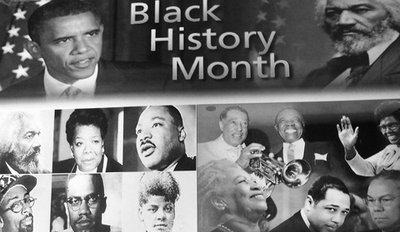Every February, students across the country learn about the contributions and stories of African-Americans during Black History Month. This year, a new film called "More Than a Month" explores changing attitudes towards race and asks whether highlighting black history during one specific month isolates it from the rest of American history.
 The month of February was chosen as Black History Month because it marked the birthdays of two Americans who greatly influenced the lives and social condition of African-Americans: former President Abraham Lincoln and abolitionist and former slave Frederick Douglass.
In the film, actor Morgan Freeman describes Black History Month as “ridiculous” and states “I don’t want a Black History month, black history is American history.”
The precursor to Black History Month was “Negro History Week” which was created by historian Carter G. Woodson in 1926. Woodson chose the second week of February because it coincided with the birthdays of Abraham Lincoln and Frederick Douglass, two Americans who helped improve the lives of African-Americans.
The month of February was chosen as Black History Month because it marked the birthdays of two Americans who greatly influenced the lives and social condition of African-Americans: former President Abraham Lincoln and abolitionist and former slave Frederick Douglass.
In the film, actor Morgan Freeman describes Black History Month as “ridiculous” and states “I don’t want a Black History month, black history is American history.”
The precursor to Black History Month was “Negro History Week” which was created by historian Carter G. Woodson in 1926. Woodson chose the second week of February because it coincided with the birthdays of Abraham Lincoln and Frederick Douglass, two Americans who helped improve the lives of African-Americans.
 Barack Obama is the first African-American to hold the office of president of the United States.
In 1986, Congress passed Public Law 99-244 which officially designated the month of February as National Black History Month. The law called upon the president to issue a proclamation to call upon the general public of the United States to observe February as “Black History Month” through ceremonies and activities.
This year President Obama’s proclamation highlights the role of black women in American culture and history.
Barack Obama is the first African-American to hold the office of president of the United States.
In 1986, Congress passed Public Law 99-244 which officially designated the month of February as National Black History Month. The law called upon the president to issue a proclamation to call upon the general public of the United States to observe February as “Black History Month” through ceremonies and activities.
This year President Obama’s proclamation highlights the role of black women in American culture and history.

Who was Carter G. Woodson?
Carter G. Woodson was an American journalist, academic and author. He was born December 19, 1875 to formerly enslaved parents. Woodson earned his high school diploma in less than two years and became the second African-American in history to earn his PhD from Harvard in 1912 after W.E.B. DuBois. Throughout his career as an academic, Woodson noticed that the history books misrepresented the experiences of African-Americans. He also believed that African-Americans had misconceptions about their history. So he devoted the rest of his life to the study of African-American history, and with the help of other prominent black intellectuals founded the Association for the Study of Negro Life and History which today is recognized as ASALH. ASALH created the Negro Bulletin, a newsletter for teachers of elementary schools and high schools that is still in circulation. Woodson championed “Negro History Week” to help the general public to be aware of the various and numerous contributions African-Americans had made to the United States, and to illustrate that the history of African-Americans is intricately intertwined in the general history of the United States.The politics of Black History Month
“Negro History Week” was well received. It helped prompt the creation of black history clubs and piqued the interest of many teachers. Politicians endorsed it publicly. In 1976 ASALH pushed to expand “Black History Week” to “Black History Month” and President Ford issued the first Message on Observance of Black History Month. In following years President Carter and Reagan also issued messages honoring “African-American History Month”, and this tradition continues today.

